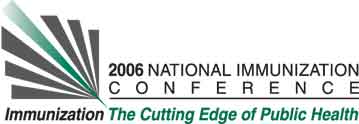Lynn Pollock, Immunization Program, New York State Department of Health, Room 649, Corning Tower, ESP, Albany, NY, USA
Learning Objectives for this Presentation:
1. Identify the positive community impact of adult immunization coalitions
2. Identify essential components of a successful “kick off” conference, including budget considerations
3. Apply at least 3 lessons learned when planning coalition events
Background:
The New York State Department of Health (NYSDOH) and New York State Association of County Health Officials (NYSACHO) have supported adult immunization coalitions since 1998. Recent national and statewide influenza vaccine supply events have had the unanticipated benefit of strengthening existing coalitions and creating new ones. New York State's over 20 active regional and local adult immunizations coalitions clearly demonstrated their value by responding to community influenza immunization needs. Integral to the NYS adult immunization coalition efforts are the regional annual conferences to “kick-off” the flu season. Collaboration among coalition partners has led to coordination of community flu clinics, vaccine redistribution to settings with high risk patients, and especially the promotion of vaccination of health care workers.
Setting:
Local health departments, hospitals, long term care facilities, and private health practices.
Population:
Public and private agencies and organizations serving adults
Project Description:
In 2005, from May until September, NYSDOH and NYSACHO sponsored 6 regional and 3 county “kick off” conferences. Each regional or county conference agenda is developed by local adult immunization coalition members to address current immunization issues and meet community needs. Kick-off presenters range from local coalition members to nationally recognized speakers.
Results/Lessons Learned:
Counties with active coalitions responded with greater flexibility, equability and alacrity to influenza vaccine delays and shortages than counties that chose not to have coalition conferences. Communities engaged in adult immunization coalitions were more prepared to deal with vaccine crises than counties who did not participate in coalition activities.
See more of Posters
See more of The 40th National Immunization Conference (NIC)

